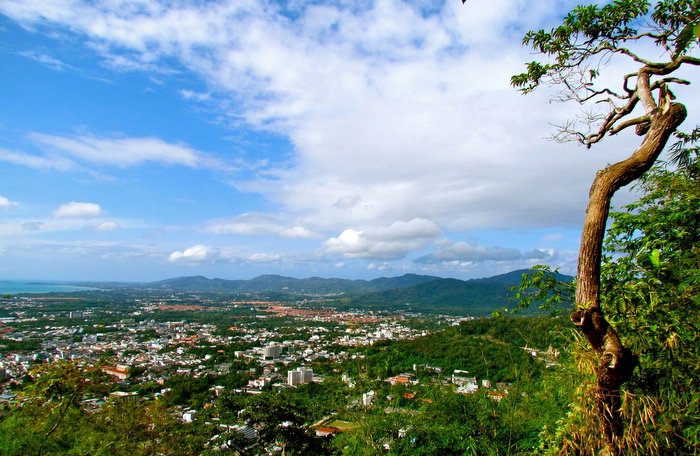Phuket real estate shrugs off Bangkok slowdown

PHUKET: In terms of property, Phuket seems to be worlds away from Bangkok, where the market has experienced a slowdown, mostly because the island is more affected by events outside of Thailand than inside the Kingdom, Robert Collins, managing director of Savills (Thailand), said earlier this week.
Because the Bangkok market has dipped, three real-estate associations recently urged the government to quickly decide whether it wants to launch a stimulus package to spur the market forward.
“Phuket is not really affected in the same way, it’s not a mainstream housing market. The indigenous population of Phuket is not growing exponentially and their housing needs have been catered for relatively well,” explained Mr Collins.
“What you find is the service sector of the Thai working population is probably the biggest driver of domestic housing, but in Phuket it forms a very small percentage of the new condominium purchasing demand.”
This is very different than Pattaya, where the domestic service sector forms quite a significant buying community, noted Mr Collin.
With external factors affecting Phuket more than internal issues, Mr Collins pointed out that the recent global stock market rout could lead to a switch in investment from stocks to luxury property on the island. Although some markets have started to recover, analysts have cautioned about the sustainability of this nascent recovery.
“It’s quite likely that we will see more people exit from the stock market, the volatility of major indices around the world is quite likely to continue and might spook investors. Some people will take profit and move their money out of those markets.
“It’s entirely feasible that they may put that into bargain-priced luxury properties that we see at certain times in all markets.
“So there is a dynamic in play and the developers have got to keep their eyes open.”
Some property players are hoping that the massive surge of Chinese tourists across the country will eventually translate into property purchases.
Mr Collins said that this is entirely possible, based on the observation that today’s multimillionaire buyers of luxury properties in Phuket were travellers in the 1970s and 1980s who didn’t then have the money to buy. But now that they do, they are returning to the place for which they had a fondness.
“We hope that they start buying. I tell you, at this point in time, it’s a trickle rather than a flood in terms of the volume of buying,” Mr Collins said.
“If you look at the trend of [Chinese] buying into London, or Canada and New Zealand, it’s substantial, that would be the only way to describe it.
“So if they start buying here, the market will see an immense take-up and upside in terms of value.”
The sustained Chinese tourism in Thailand and the country’s proximity to the ‘Sleeping Dragon’ establishes it as a logical places for property investment by Chinese, especially given the number of wealthy Chinese currently bolstering property markets around the world.
“However, the type of tourists that Thailand is hosting and receiving is quite different from the people who are buying in those other countries.”
Though Phuket is not suffering the same slowdown as Bangkok, Mr Collins agreed with the proposal of the real-estate associations for stimulus measures, particularly increasing leasehold from 30 to 50 years, to be implemented to spur the foreign market.
“I think that would help enormously, certainly we are lagging behind some big competition in the region.”
— Nina Suebsukcharoen
Latest Thailand News
Follow The Thaiger on Google News:


























